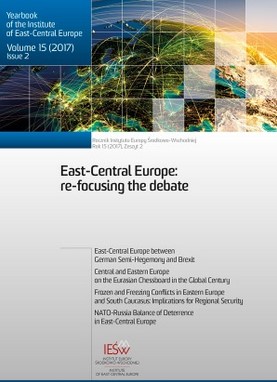Frozen and Freezing Conflicts in Eastern Europe and South Caucasus: Implications for Regional Security
Frozen and Freezing Conflicts in Eastern Europe and South Caucasus: Implications for Regional Security
Author(s): Agnieszka LeguckaSubject(s): Environmental and Energy policy, International relations/trade, Security and defense, Transformation Period (1990 - 2010), Present Times (2010 - today), Peace and Conflict Studies
Published by: Instytut Europy Środkowej
Keywords: Russia; Ukraine; Georgia; Moldova; Azerbaijan; regional security; frozen conflicts;
Summary/Abstract: The paper focuses on the process of frozen or freezing conflicts in the post-Soviet area and how they influence regional security in Eastern Europe and South Caucasus. The key argument advanced is that the almost three-year-long war in eastern Ukraine (Donbas) will become another frozen conflict in the post-Soviet space. The reasons for this are the lack of agreement between Ukraine and Russia on the future of the region and Russia’s support for the Donbas administration. The main consequences of those conflicts are destabilization, devastation and militarization of Eastern Europe. Russia has experience leveraging conflicts of this type and using them to further its foreign and security policy aims. Georgia, Azerbaijan, Armenia, Moldova and Ukraine are affected by the problem of frozen conflicts, which influence their internal political, economic and social situation.
Journal: Rocznik Instytutu Europy Środkowo-Wschodniej
- Issue Year: 15/2017
- Issue No: 2
- Page Range: 79-97
- Page Count: 19
- Language: English

